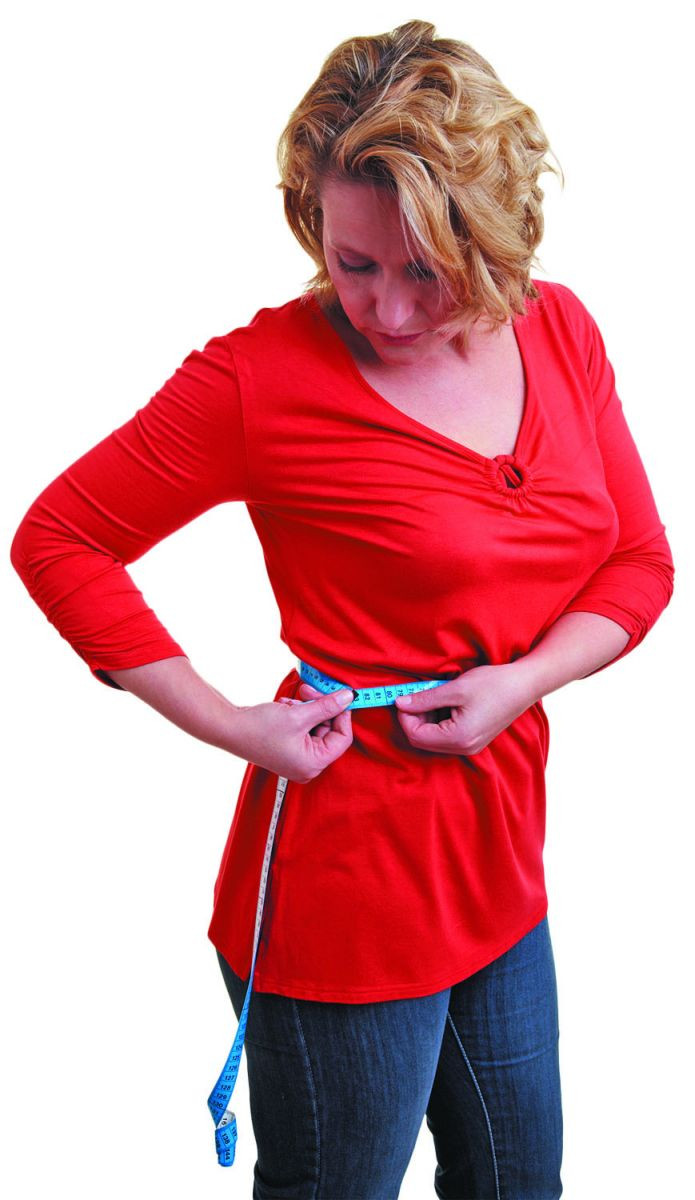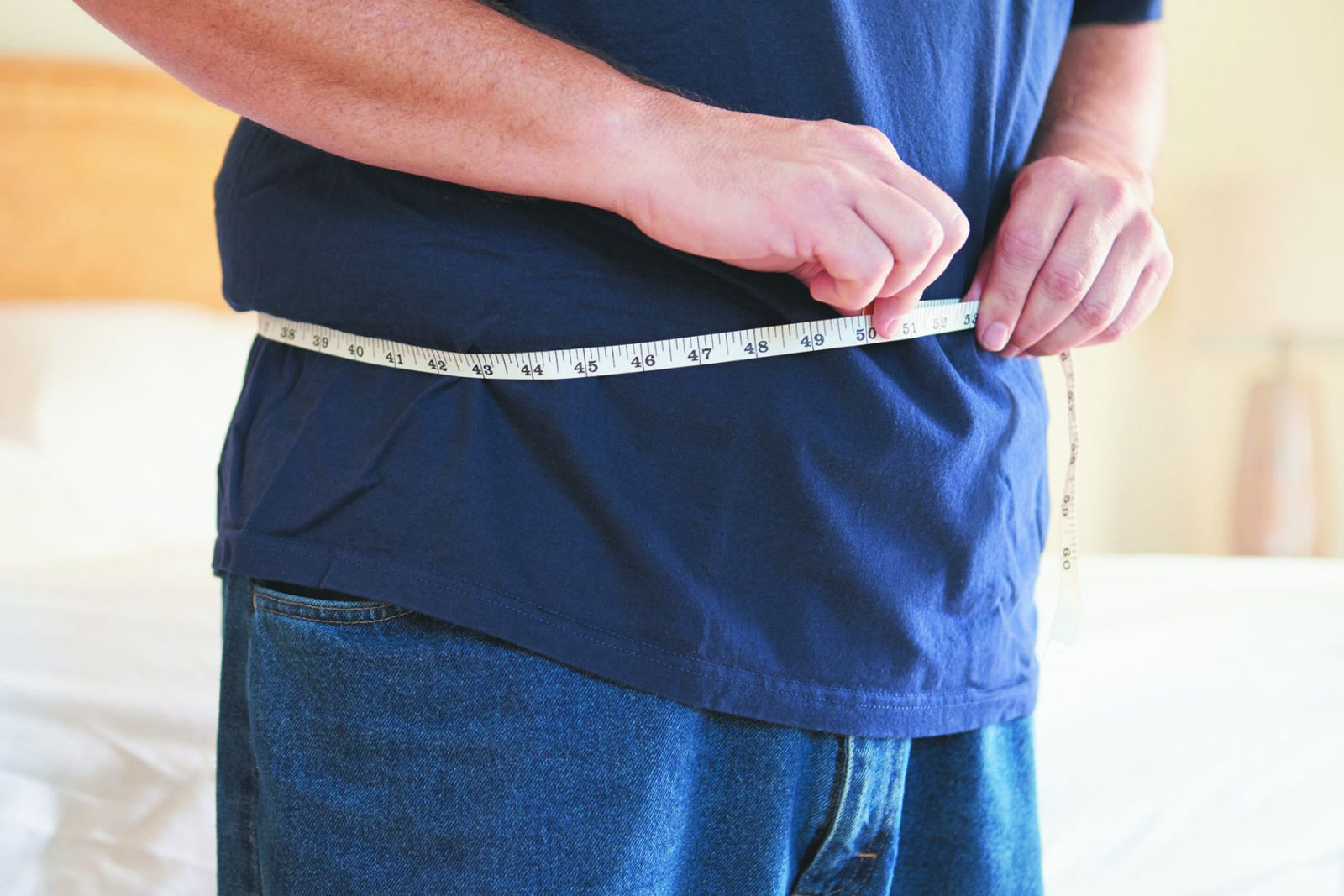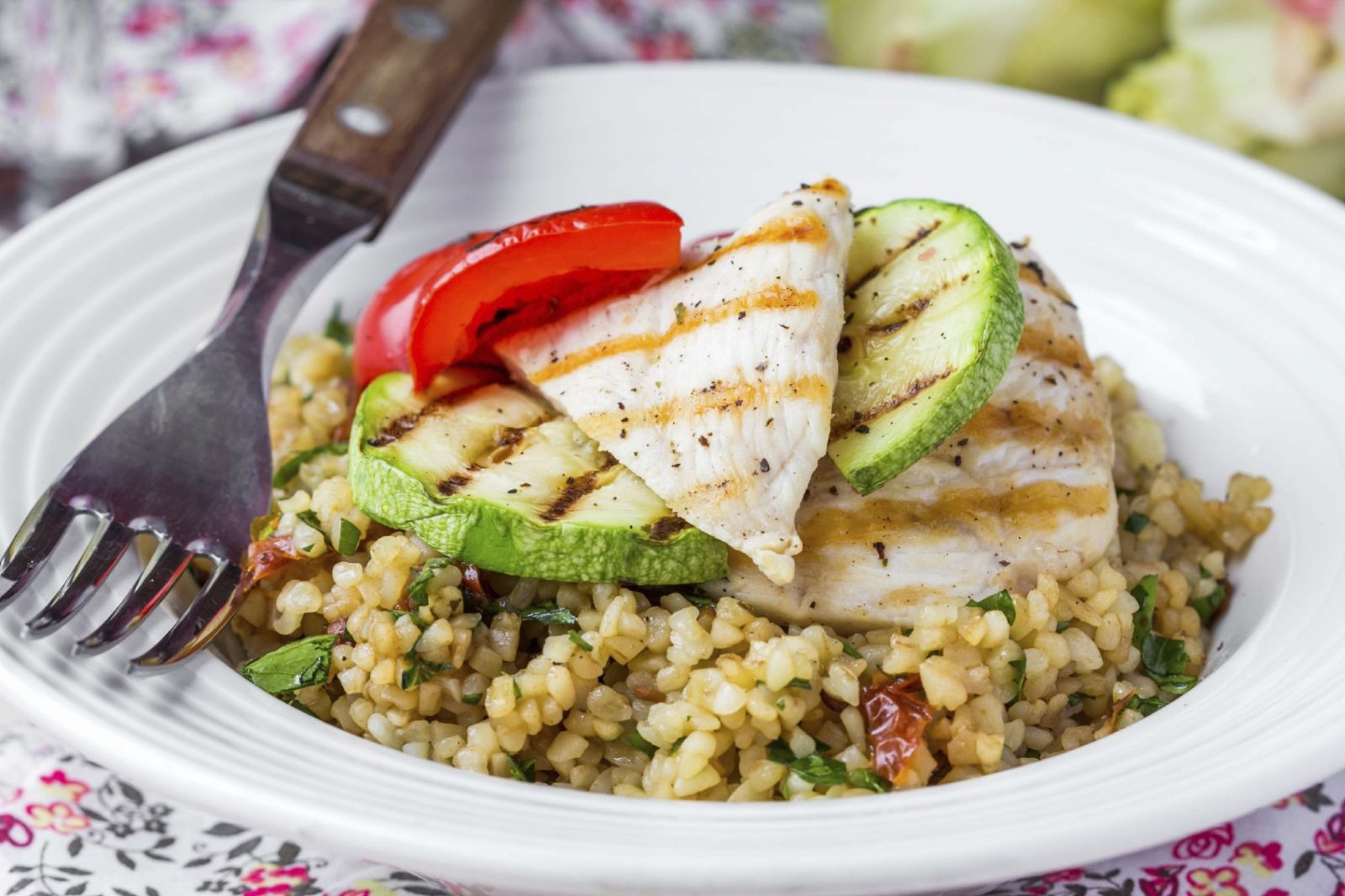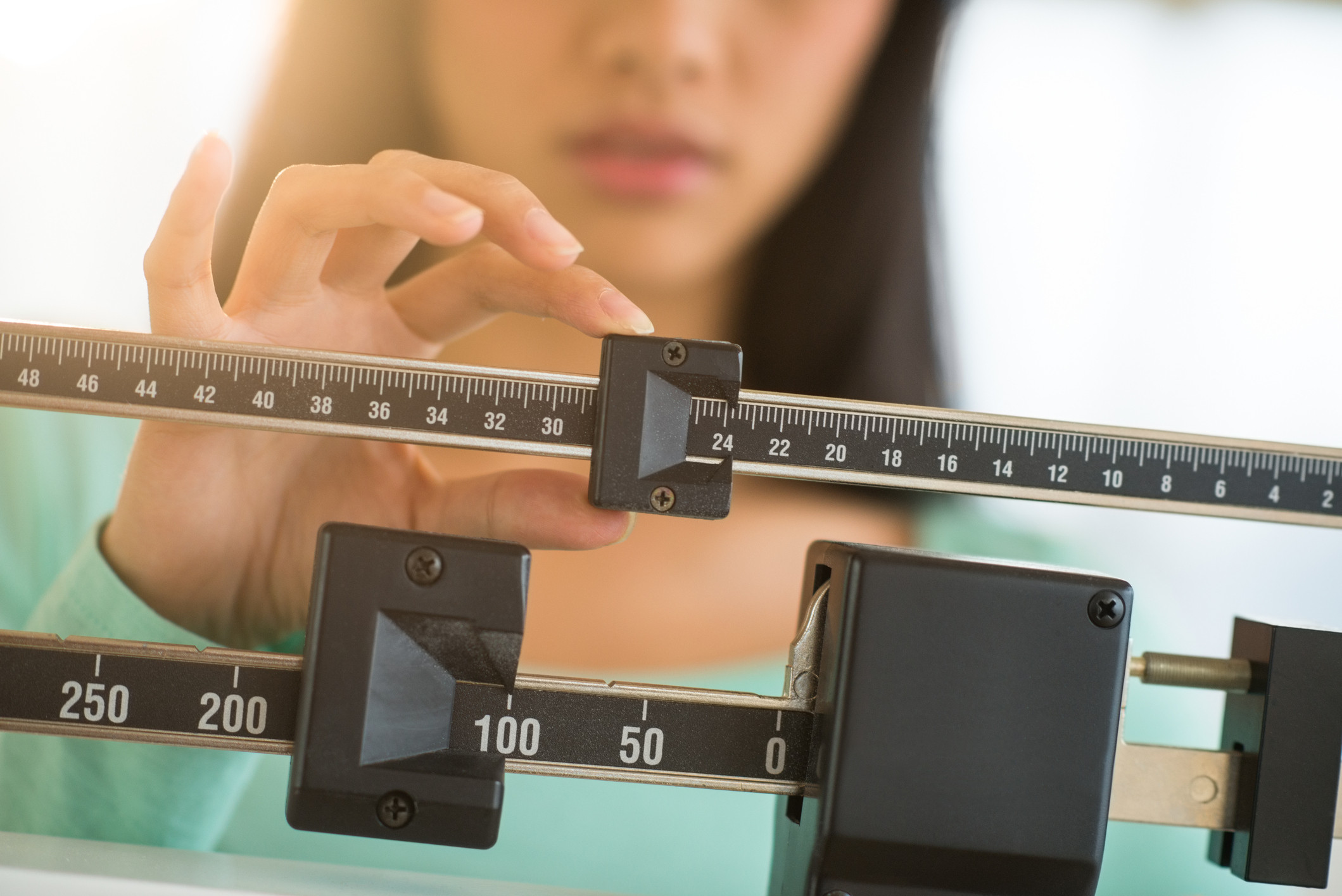
5 timeless habits for better health

What are the symptoms of prostate cancer?

Is your breakfast cereal healthy?

When pain signals an emergency: Symptoms you should never ignore

Does exercise give you energy?

Acupuncture for pain relief: How it works and what to expect

How to avoid jet lag: Tips for staying alert when you travel

Biofeedback therapy: How it works and how it can help relieve pain

Best vitamins and minerals for energy

Should you take probiotics with antibiotics?
Diet & Weight Loss Archive
Articles
Weight-loss devices: How they work
Stomach balloons and other devices may help people eat (or absorb) less food. But does the weight loss last?
For the millions of Americans who have obesity, the burden of excess weight is much more than meets the eye. This chronic, debilitating condition leaves people prone to many serious illnesses, including heart disease. But for many, diet and exercise often prove frustratingly futile (see "What's a healthy weight?")
What's a healthy weight?The body mass index (BMI) estimates whether a person has a healthy (normal) or unhealthy amount of body fat (overweight or obesity). Calculate yours at www.health.harvard.edu/bmi. Weight-loss devices are approved for people who fall into the obesity category. |
Being overweight any time in adulthood still associated with a shorter life
Research we're watching
Previous studies have suggested that being somewhat overweight or even slightly obese may not be associated with a shortened life span. Some studies have suggested that being a bit overweight might even be healthier than being at normal weight. This has been referred to as the "obesity paradox."
A recent analysis of data from the Nurses' Health Studies I and II and the Health Professionals Follow-up Study has helped bring clarity to this paradox. Researchers from the Harvard T.H. Chan School of Public Health and Boston University School of Public Health assessed the maximum body mass index (BMI) over 16 years for more than 190,000 postmenopausal women and 35,000 senior men. They then tracked who died over a follow-up period averaging 12 years. They found that people with a maximum BMI in the normal range (18.5 to 24.9 kg/m2) throughout life had the lowest risk of death. Those whose highest recorded BMI fell into the overweight or obese category were at elevated risk of dying from any cause, as well as dying specifically from cardiovascular disease, cancer, or respiratory disease, during the follow-up period.
Why middle-age spread is a health threat
Those extra inches around the middle may signal increased fat around abdominal organs and rising health risks.
It's a rare woman over age 50 who has the same waist measurement she had as a teenager. But in the past decade or so, women's waistlines have been expanding regardless of age. A 2014 report from the National Health and Nutrition Examination Survey found that from 1999 to 2012, the average body mass index (BMI) for women age 20 or older held steady. But during the same period, the average female waistline grew slowly and steadily, from 36.2 inches to 37.8 inches. Researchers are still searching for an explanation for this phenomenon, but they do know one thing: increasing waistlines are linked to greater risks for heart disease, diabetes, and osteoporosis.
What's in a waistline?
Regardless of whether your weight has changed over the years, your height is likely to have decreased, the result of declining volume in the intervertebral discs of the spine. As your torso shortens, your abdominal organs have less vertical space to inhabit, so they move horizontally. If you haven't gained weight, an increase of an inch or two around the waist may simply reflect lost height.
Should I drop calories or boost exercise?
Ask the doctor
Image: © udra/Thinkstock
Q. To lose weight, should I focus more on my calorie count or the amount of time I spend exercising?
A. It is very, very hard to lose weight without both watching your calories and regularly exercising. But it's not that simple. For years, doctors (including me) told patients: "You've got to burn off more calories through exercise than the calories that you eat. If you do that, you'll maintain a healthy weight." We even implied that not being able to maintain a healthy weight, since it was so simple, reflected a weakness of character.
Cancer and fat: New findings about the connection
News briefs
Image: © monkeybusinessimages/Thinkstock
Carrying around extra weight is a known risk factor for developing some cancers. But exactly which kinds of cancer are associated with obesity is debated. A study published Feb. 28, 2017, in The BMJ aimed to narrow it down. European researchers combed through about 100 large reviews of observational studies that looked for links between being overweight and getting cancer.
Out of 36 kinds of cancer evaluated, the researchers found strong evidence for a link to obesity for 11—in the colon, rectum, biliary tract (liver and gallbladder), pancreas, breast, endometrium (uterine lining), ovary, kidney, and the gastric cardia (the junction of the esophagus and stomach); a certain type of esophageal cancer (adenocarcinoma); and one type of bone marrow cancer (multiple myeloma). The researchers said there may be links between obesity and other cancers, but so far the evidence is relatively weak.
How to eat healthy away from home if you have diabetes
For people with diabetes, eating out — whether at a restaurant, a social function, or a friend's home — can be a challenge. Portions can be hefty and packed with calories and saturated fat. When you eat out, it may help to follow these simple guidelines:
- Ask how entrées are prepared, and avoid fried foods or dishes served in heavy sauces or gravies.
- Choose skinless chicken, fish, or lean meat that's broiled, poached, baked, or grilled.
- Get the server's advice to help you select healthy, low-fat dishes. Restaurants are used to dealing with special diets.
- Don't feel obliged to clean your plate. Eat a reasonable portion, and take the remainder home.
- Choose steamed vegetables and salads to accompany your meals. Request low-calorie dressings and toppings, and if they're not available, ask for all dressings, butter, and sauces to be served on the side so you can use them sparingly.
- If you take insulin and you know your meal will be delayed, time your injection appropriately. You may need to eat a roll or piece of fruit to tide you over.
- If you're craving dessert, have some — but split it with someone else.
For more information on the essentials for a healthy diet and managing type 2 diabetes, buy Healthy Eating for Type 2 Diabetes, a Special Health Report from Harvard Medical School.
5 habits that foster weight loss
The hardest part of weight loss is making healthy choices part of your daily routine without constantly feeling as if you’ve deprived yourself of something. We offer five proven strategies to help you shed pounds based on the experiences of people who have lost weight and kept it off.
Get cooking at home
Sharpening your culinary skills (or developing new ones) can improve your diet, nutrition, and social life.
Image: gpointstudio/iStock
We tend to cook less as we age. Why cook when you can zap something in the microwave, pour something ready-to-eat into a bowl, or speed-dial for takeout? But this quick-eating trend has made many men adopt diets that put them at risk for weight gain, heart disease, and diabetes.
"Many older men have never developed or have lost touch with kitchen skills, and thus have become too dependent on processed and prepared foods," says Dr. David Eisenberg, of the Department of Nutrition at the Harvard T.H. Chan School of Public Health.
Ask the doctor: Do artificial sweeteners cause insulin resistance?
In preliminary research, sucralose and acesulfame potassium increased insulin levels, although more studies are necessary to determine whether they—or other artificial sweeteners—increase the risk of insulin resistance.
Incontinence may reflect body fat, not just weight
The risk of developing stress incontinence or urge incontinence increases along with BMI and body fat percentage. Stress incontinence is also associated with declines in grip strength.

5 timeless habits for better health

What are the symptoms of prostate cancer?

Is your breakfast cereal healthy?

When pain signals an emergency: Symptoms you should never ignore

Does exercise give you energy?

Acupuncture for pain relief: How it works and what to expect

How to avoid jet lag: Tips for staying alert when you travel

Biofeedback therapy: How it works and how it can help relieve pain

Best vitamins and minerals for energy

Should you take probiotics with antibiotics?
Free Healthbeat Signup
Get the latest in health news delivered to your inbox!
Sign Up










